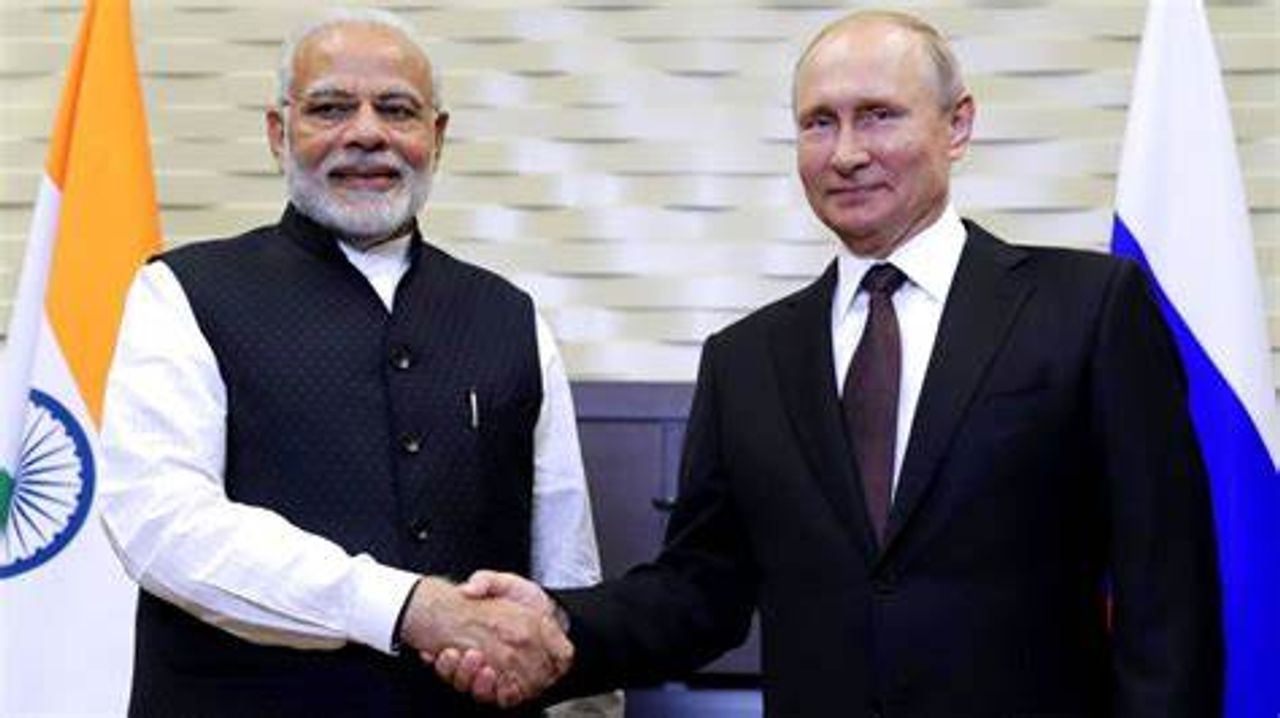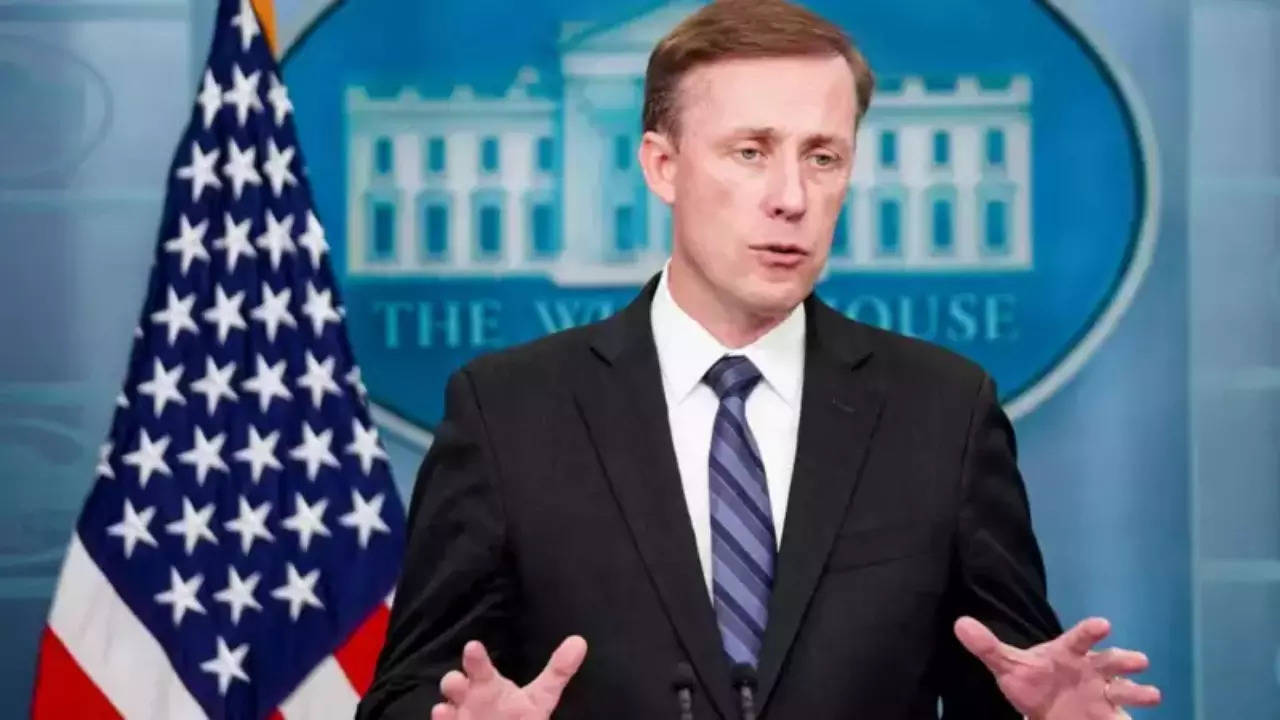Jaishankar-Wang Yi agree to resume dialogue over border peace on the side lines of the Shanghai Cooperation Organization Summit in Astana,...
Vous n'êtes pas connecté
- English
- Français
- عربي
- Español
- Deutsch
- Português
- русский язык
- Català
- Italiano
- Nederlands, Vlaams
- Norsk
- فارسی
- বাংলা
- اردو
- Azərbaycan dili
- Bahasa Indonesia
- Հայերեն
- Ελληνικά
- Bosanski jezik
- українська мова
- Íslenska
- Türkmen, Түркмен
- Türkçe
- Shqip
- Eesti keel
- magyar
- Қазақ тілі
- Kalaallisut ; kalaallit oqaasii
- Lietuvių kalba
- Latviešu valoda
- македонски јазик
- Монгол
- Bahasa Melayu ; بهاس ملايو
- ဗမာစာ
- Slovenščina
- тоҷикӣ ; toğikī ; تاجیکی
- ไทย
- O'zbek ; Ўзбек ; أۇزبېك
- Tiếng Việt
- ភាសាខ្មែរ
- རྫོང་ཁ
- Soomaaliga ; af Soomaali
Rubriques :
 Maroc - EURASIAREVIEW.COM - A la une - 06/Jul 22:47
Maroc - EURASIAREVIEW.COM - A la une - 06/Jul 22:47
From Unpredictability To Risk Management: Modi’s Visit To Moscow – Analysis
By Ivan Shchedrov The speculations about Prime Minister Narendra Modi’s visit to Moscow, published in late June, were immediately picked up by the world media. Everyone understood that the interaction with Russia’s leadership would carry important political and symbolic significance as it would be the first foreign bilateral visit after India’s general elections this year. Thus, Modi decided to break an informal tradition of visiting the immediate South Asian neighbourhood first. Being the first visit to Russia’s capital since 2015, the visit marked the country’s commitment to the Russia–India dialogue format, which has been postponed for three years, excluding the meeting on the sidelines of the Shanghai Cooperation Organisation (SCO) summit in Uzbekistan in 2022. The suspension clearly resonated with the consistency of the Russia–China dialogue, as there were three back-to-back personal meetings. The convening of annual summit-level meetings was a main provision of the Declaration on Strategic Partnershipsignedin October 2000. Therefore, bilateral exchanges between the heads of states were frequent until the COVID-19 pandemic. Following the pandemic, President Putin visited India in 2021, which makes it Modi’s turn to visit Russia. During EAM Dr S Jaishankar’s visit to Russia late last year, hestatedthat the Prime Minister would visit Russia in 2024. The elementof surprisehas become a key feature of the relationship between India and Russia in the post-2022 era. The abruptness in official disclosures was driven by the desire to eliminate infoglut that would accompany the visit. In public perception, the visit holds as much symbolic relevance as political value. This stems from the resumption of the format after the long break—if the leaders had not met this year, it would have fuelled serious discussions regarding the continuity of India’s foreign policy strategy in case of a balanced approach towards big powers. “The visit is timely, but also overdue to recharge the wellsprings of the strategic partnership”,saidformer Ambassador to Moscow, Venkatesh Verma. The gossamer of foreign ties The foreign policy equation that India’s decision-makers are trying to solve seems to have a complex structure. The country is trying to embrace an impartial approach while engaging with the leadership of opposing blocs. Thus, Modi’s visit to Russia was preceded by a meeting of the G7 summit, which was held a few days after Modi took the oath. At this privileged club gathering, Modi not onlyamplifiedthe voice of Global South but alsometwith the President of Ukraine—a meeting that has already become regular within the format. In this case, the precedence of the meeting on the margins was set against the status of the visit to Russia. Another example is India’s level of participation at the Switzerland summit andrefusalto sign the final communiqué. Political elites understand the importance of personal contact under new circumstances as such an event could be perceived as an important signal to both sides. The intricacy also lies in the fact that Russia and India have different approaches to understanding the political meaning of this visit. If for Russia, at least in the public sphere, it holds importance in the context of India’s engagement with the West amidst the Ukrainian crisis, for India, this equation is complemented by the dichotomy between the Eurasian and Euro-Atlantic directions of foreign policy, as well as relations with competitors on the continent. In other words, the problem derives from the different assessments of foreign policy manoeuvres. Thesuddencancellation of Modi’s visit to the SCO summit in Kazakhstan is yet another illustration. On the one hand, the decision is attributable to internal political reasons—the firstsessionof the new Lok Sabha ended the day before. However, at the same time, it occurs within the context of India’s foreign policy approach. The country’s leadership is reluctant to publicly show the visibility of interaction with China and Pakistan. This reasonhas presumably led to the conceptual “division” of India’s foreign policy agenda in Eurasia on bilateral interaction with Russia and holding the Central Asia + India summit, which is scheduled for this year. However, a decrease in the political status of presence does not imply refusal of engagement, as SCO remains a vital negotiation platform with China and Pakistan, as well as on Afghanistan issues. Moscow’s presentiments Russia immediatelyindicatedthat it attaches paramount importance to the visit, as it is perceived as a conformation of India’s strategic ability to pursue a balanced and independent foreign policy, which is one of the conditions for the establishment of a multipolar world system. The dynamism of India-United States (US) relations did not remain unnoticed, but Moscow understands the underlying factors that are driving this process. That is why the main desire is that this “drifting” does not occur at the expense of the ties with Russia. Generally, the scope and the tempo of bilateral relations are considered to be positive both in economic and political spheres. Thus, the level of bilateral trade in FY 2023-24exceededUS$65.5 billion, indicating an increase of 25 percent compared to FY 2022-23. Russia ranks fourth among all India’s trading partners. In addition, India’s exports increased by 35 percent, indicating the beginning of the mitigation of trade imbalances propelled by the surge in the supply of smartphones, metallurgical, and engineering products. The period alsosawthe first supply of aluminium to Russia in 15 years. What to expect Apparently, any breakthrough agreements are unlikely to happen due to an almost complete lack of information about the visit from both sides. Although the pressure of sanctions on the Russian economy has not abated, Russia’s ability to adapt to these sanctions remains high and with time, the psychological impact of the new packages is also declining. Due to the fact that business relations between India and Russia are still nascent, the visit could demonstrate intentions for long-term cooperation. The alleged topics on the agenda are outlined below: Trade and logistics:Unlike previous years, these questions dominate the agenda, asevidencedby the official statements following the meeting between foreign affairs ministers S.Jaishankar and S. Lavrov on the sidelines of the SCO summit. For example, the creation of a sustainable payment mechanism for bilateral trade is still relevant, whilst the scale of the problem is overstated by the media. Another topic is the creation of new product chains involving Russian and Indian companies, as well as investment in maritime infrastructure to ensure the operation of the Chennai-Vladivostok Sea route. Finally, the issue of the development of INSTC has not lost relevance, despite no attention in BJP’s manifestoin contrast tothe Middle East-Europe Corridor. Politics:These issues are related to the Ukrainian crisis, which involves several aspects for discussion, including the clarification of the political stance of both sides, the conditions for a peace agreement, as well as the issue of arms supplies. Another subject is the participation of Indian citizens in the conflict—a problem recentlyoutlinedby S.Jaishankar. Apart from global issues, we should not leave out regional dynamics connected to some shifts in Afghanistan and the South Caucasus. The regional cooperation will also be driven by the need to find opportunities for joint projects in Eurasia, including Central Asia. Technologies and investments: Russia is committed to increasing collaboration in the technology sector, both through bilateral projects and its overall presence in the Indian market. In addition to new and emerging technologies, traditional areas of the secondary sector, such as metallurgy, chemical industry, mining, space, etc., in recent years have been unfairly forgotten. Today the need to expand cooperation in these traditional spheres is widely acknowledged in Russia. The basis for this engagement could be found in joint fundamental research and scientific and educational exchanges. Conclusion The high dynamism in bilateral trade requires an appropriate strategic basis that will make the India-Russia relationship more manageable. The increased predictability is a long-felt need for payment-related issues, logistics, technology, and investment spheres. In the political domain, both countries need to confirm mutual trust amidst growing apprehensions about Russia-China and India-US convergences. In these conditions, the states need to establish a roadmap to bring greater manageability to bilateral ties. In doing so, the leaders will express the intention to shift from a paradigm of “ad-hoc response to external challenges” to creating a more sustainable framework for interaction. About the author: Ivan Shchedrovis a Visiting Fellow at the Observer Research Foundation. Source: This article was published by the Observer Research Foundation.
Articles similaires
India-Russia Ties Take A Quantum Leap In The Fog Of Ukraine War – OpEd
The lodestar of Prime Minister Narendra Modi’s talks with Russian President Vladimir Putin in Moscow on July 8-9, it must be thedisclosureby the...
PM Modi to Visit Russia Amidst Post-Ukraine War Diplomatic Tensions, Spotlight on Friendship with Putin
Prime Minister Narendra Modi's upcoming visit to Russia comes at a pivotal moment in global diplomacy, against the backdrop of lingering tensions...
India-Russia consolidate strategic partnership amidst chaos a chaotic world
Indian Prime Minister Narendra Modi’s recent visit to Russia for a bilateral summit with President Vladimir Putin has underscored the depth and...
Modi 3.0: What It Means For India-Bangladesh – OpEd
The India-Bangladesh relationship, historically marked by periods of cooperation and conflict, has witnessed significant transformations under Prime...
'Bet on Russia as reliable partner is not good ': US warns India
US National Security Adviser Jake Sullivan warned India that relying on Russia as a "reliable partner" is a poor strategic move, noting that Russia...
India-Russia Summit: Expanding economic and geopolitical horizons
The relationship between India and Russia stands as a testament to the enduring nature of strategic alliances. Indian Prime Minister Narendra Modi’s...
What to Expect From Putin-Modi Talks in Moscow
Indian Prime Minister Narendra Modi is visiting Moscow on July 8-9 to co-chair the 22nd Russia-India Annual Summit with President Vladimir Putin. This...
The Great Indian Balancing Act: Arms, Alliances, And The Israel-Hamas War – OpEd
India's foreign policy has entered a labyrinth of complexity and contradiction. As the Israel-Hamas conflict unfolds, New Delhi's clandestine arms...
Why Does Bangladesh Need To Balance With India And China? – OpEd
On January 7th of this year, Awami league came to power for the fifth time with Sheikh Hasina as the head of government. Within six months of...
Les derniers communiqués
-
Adobe Brings Conversational AI to Trillions of PDFs with the New AI Assistant in Reader and Acrobat
Adobe - 21/02/2024
-
Laura Frigenti takes the Helm as Chief Executive Officer of the Global Partnership for Education
Global Partnership for Education - 05/12/2022

